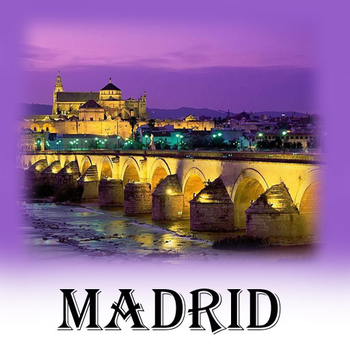
MADRID CITY TICKETS
Introduction
Madrid, the vibrant capital city of Spain, is known for its rich history, majestic architecture, and diverse culture. Football is an integral part of Madrid's cultural landscape, with the city being home to two of Spain's most successful football clubs, Real Madrid and Atlético Madrid. This comprehensive guide delves into Madrid's football culture, exploring its history, significance, legendary players, unforgettable matches, and the future of the sport in this lively city.
1. A Brief History of Football in Madrid
Football in Madrid dates back to the late 19th century when British expatriates introduced the sport to the city. The first club to be formed in Madrid was Madrid Football Club, which later became Real Madrid, founded in 1902. Atlético Madrid, originally founded as Athletic Club Sucursal de Madrid in 1903, was established as a branch of Basque club Athletic Bilbao. Over the years, both clubs have grown in stature and success, becoming dominant forces in Spanish and European football.
2. The Role of Football in Madrid's Identity
Football holds a special place in the hearts of Madrid's residents, who passionately support their local clubs. The sport transcends mere entertainment, serving as a symbol of unity and identity. Real Madrid and Atlético Madrid have created a unique football atmosphere in the city, with their intense rivalry and contrasting styles adding to the appeal of Madrid's football culture.
3. Real Madrid: A Global Football Powerhouse
Real Madrid, one of the most successful clubs in the history of football, has won numerous domestic and international titles, including a record 13 UEFA Champions League trophies. The club's illustrious history has seen many legendary players don the iconic white jersey, leaving an indelible mark on the football world.
Some of Real Madrid's most notable players include:
- Alfredo Di Stefano
- Ferenc Puskás
- Ronaldo Nazário
- Zinedine Zidane
- David Beckham
- Raúl González
- Iker Casillas
- Cristiano Ronaldo
- Sergio Ramos
- Luka Modric
4. Atlético Madrid: A Club of Passion and Resilience
Atlético Madrid, known for its passionate fan base and resilient playing style, has carved a unique identity in the football world. The club has consistently challenged its more illustrious city rivals and other top European clubs, winning numerous domestic and international titles, including three UEFA Europa League trophies and one UEFA Super Cup.
Some of Atlético Madrid's most notable players include:
- Luis Aragonés
- Fernando Torres
- Sergio Agüero
- Diego Forlán
- Radamel Falcao
- Diego Godín
- Antoine Griezmann
- Jan Oblak
- Diego Costa
- João Félix
5. Santiago Bernabéu and Wanda Metropolitano: Temples of Madrid's Football Culture
The Santiago Bernabéu, Real Madrid's iconic stadium, has been the heart of Madrid's football culture since its inauguration in 1947. With a seating capacity of over 81,000 spectators, it is one of the largest and most famous stadiums in the world. The stadium has hosted numerous historic matches, including the 1982 FIFA World Cup final and multiple UEFA Champions League finals.
The Wanda Metropolitano, Atlético Madrid's home ground since 2017, is a state-of-the-art stadium with a seating capacity of 68,000. The stadium, named after the club's former ground, Estadio Vicente Calderón, has quickly become a symbol of the club's growth and ambition. The Wanda Metropolitano hosted the 2019 UEFA Champions League final, further cementing its place in Madrid's football landscape.
6. The Madrid Derby: A Fierce and Passionate Rivalry
The Madrid Derby, featuring Real Madrid and Atlético Madrid, is one of the most intense and closely contested rivalries in world football. The derby showcases the passion and pride of both clubs and their supporters, with matches often being fiercely contested and unpredictable affairs. The rivalry transcends the boundaries of the football pitch, as it also represents the social and cultural differences between the two clubs' fan bases, with Real Madrid often being associated with the city's elite and Atlético Madrid with the working class.
7. The Academy Systems: Nurturing Future Stars
Both Real Madrid and Atlético Madrid invest heavily in their youth academies, known as La Fábrica and La Academia, respectively. These academies are focused on developing young talents and instilling the clubs' values and playing philosophies. Several notable players have emerged from these academies, including Real Madrid's Raúl González, Iker Casillas, and Dani Carvajal, as well as Atlético Madrid's Fernando Torres, Koke, and Saúl Ñíguez.
8. The Future of Football in Madrid
The future of football in Madrid looks promising, as both Real Madrid and Atlético Madrid continue to invest in their squads, infrastructure, and youth development. With their storied histories and strong foundations, the clubs are well-positioned to maintain their status as dominant forces in Spanish and European football. Additionally, the growth of grassroots football and the emergence of new talents ensure that Madrid's football culture will continue to thrive for generations to come.
Madrid's football culture is a testament to the city's passion for the sport and the significance it holds in the lives of its residents. With the iconic Santiago Bernabéu and Wanda Metropolitano stadiums, legendary players who have graced the pitch, and the intense rivalry between Real Madrid and Atlético Madrid, the city's football landscape is rich and captivating. The dedication to nurturing talent and preserving the unique identities of the clubs ensures that Madrid will continue to be a bastion of football excellence for years to come.

